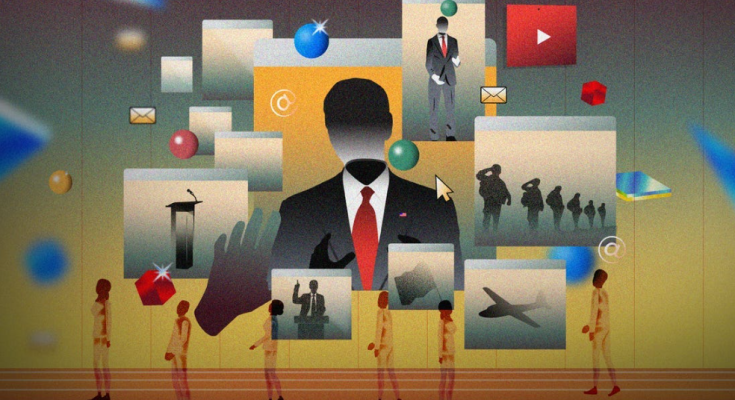The Impact of Social Media on Political Discourse: Misinformation, Polarization, and Regulation
Social media platforms have become integral to political discourse, providing a space for individuals to engage in discussions, share information, and participate in civic activities. However, the rise of social media has also brought about significant challenges, including the spread of misinformation, the amplification of political polarization, and the need for regulation to address these issues. In this article, we’ll explore the impact of social media on political discourse, examine the consequences of misinformation and polarization, and discuss the role of regulation in promoting a healthy online environment for democratic engagement.
The Role of Social Media in Political Discourse:
Social media platforms such as Facebook, Twitter, and YouTube have transformed the way people consume and interact with political information. These platforms allow individuals to connect with like-minded individuals, engage in discussions about political issues, and access news and information from a wide range of sources. Social media has also democratized political participation, enabling grassroots movements, activism, and mobilization on a global scale.
The Spread of Misinformation:
One of the most significant challenges posed by social media is the spread of misinformation and false or misleading information. Misinformation can take many forms, including conspiracy theories, rumors, hoaxes, and propaganda, and it can spread rapidly through social networks, reaching large audiences in a matter of minutes. The decentralized nature of social media platforms makes it challenging to combat misinformation effectively, as content moderation and fact-checking efforts often lag behind the rapid spread of false information.
The Consequences of Misinformation:
Misinformation can have serious consequences for political discourse and democratic governance. It can erode trust in institutions, undermine confidence in the media, and fuel polarization and division among the public. Misinformation can also influence public opinion, shape electoral outcomes, and impact policymaking decisions. In extreme cases, misinformation can incite violence, undermine public health efforts, and threaten the stability of democratic societies.
The Amplification of Political Polarization:
Social media has also been implicated in the rise of political polarization, as individuals are increasingly exposed to content that reinforces their existing beliefs and biases. Algorithms used by social media platforms to personalize content recommendations and prioritize engagement can create filter bubbles and echo chambers, where users are only exposed to information that aligns with their worldview. This can lead to increased polarization, tribalism, and a breakdown of civil discourse, as individuals become less willing to engage with opposing viewpoints or consider alternative perspectives.
The Need for Regulation:
Given the challenges posed by social media in shaping political discourse, there is a growing consensus on the need for regulation to address issues such as misinformation, polarization, and algorithmic amplification. Regulation can take various forms, including legislative measures, regulatory oversight, and self-regulatory efforts by social media companies. Some potential approaches to regulation include:
– Transparency requirements: Requiring social media platforms to disclose information about their content moderation practices, algorithms, and data collection practices to promote transparency and accountability.
– Fact-checking and content moderation: Implementing mechanisms for identifying and flagging misinformation, as well as improving content moderation efforts to remove harmful or misleading content from social media platforms.
– Algorithmic accountability: Holding social media companies accountable for the design and implementation of their algorithms, including measures to mitigate the spread of misinformation, reduce polarization, and promote diverse perspectives.
– User empowerment: Empowering users with tools and resources to identify and combat misinformation, such as providing access to fact-checking tools, media literacy programs, and educational resources.
– Oversight and enforcement: Establishing independent oversight bodies or regulatory agencies to monitor compliance with regulatory requirements and enforce penalties for violations of laws or regulations related to political discourse on social media.
Conclusion:
The impact of social media on political discourse is profound and far-reaching, shaping public opinion, influencing electoral outcomes, and impacting democratic governance. While social media has the potential to enhance civic engagement and democratic participation, it also poses significant challenges, including the spread of misinformation, the amplification of political polarization, and the need for regulation to address these issues. By recognizing the importance of regulation, promoting transparency and accountability, and empowering users to engage critically with political information, we can foster a healthier online environment for democratic engagement and promote informed, constructive political discourse in the digital age.
For more information related Crypto, Checkout over website Cyptogole
For more information related other topics Newsreap



